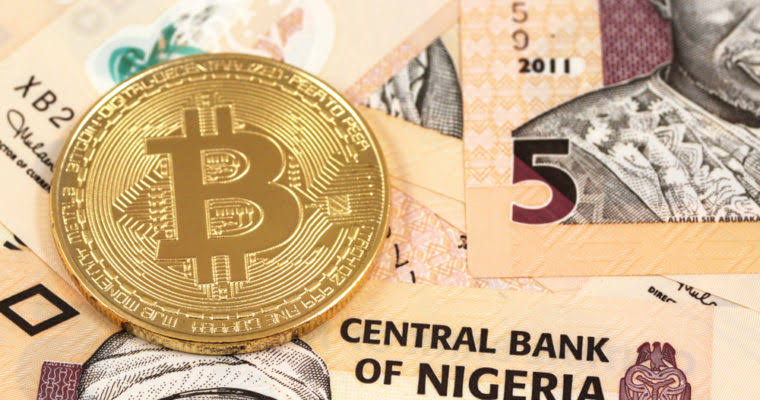
While institutions and financial players globally are working on digital currency initiatives and expanding services to cryptocurrency startups; Nigerian banks have maintained a rigid stance with regards to cryptocurrency, and seem very uninterested in learning or partnering with Bitcoin or crypto-related exchanges.
This current unfriendly relationship could be first attributed to a circular issued by the country’s apex bank on the risk of cryptocurrency with respect to its volatility; a concept which is mostly beyond the crypto industry’s control.
Other reasons such as the propagation of Bitcoin and cryptocurrency related ponzi-schemes have been self inflicted.
This is caused by criminal elements who capitalize on the sweet gains of cryptocurrency to promise Nigerians mouth-watering returns through fake investment/trading schemes like Pennywise, Forsage – an activity which has led to a hostile perception of Bitcoin and all things crypto.
There are also concerns regarding anti-money laundering regulations, and the use of cryptocurrency’s “supposed anonymity” to perpetrate crimes such as kidnapping and extortion – for this part it is only convenient to blame it on digital currency when the corruption and illicit acts had existed way before Bitcoin (the first cryptocurrency launched in 2009).
In response to the above claims against the cryptocurrency industry, here are arguments in favour of crypto in Nigeria.
1. Cash Was The Beginning of Ponzi: In a previous publication, we analyze “Bitcoin vs Cash: The Good, The Bad, The Ugly.”
While many anti-crypto players hold on to the “scam narrative”, they forget so quickly that even before cryptocurrencies or bitcoin became popular, cash (paper money) had been used to swindle victims through ponzi schemes like MMM.
Even current AML and corruption claims have been widely facilitated by cash. So why blame it on Bitcoin?
2. Nigerian Banks Should Learn from their United States Counterparts
After an initial indifferent approach to the Bitcoin and digital currency discussion, major U.S banks have now become partners with top cryptocurrency exchanges in the country; serving both companies and their customers.
Notably, the United States Banking Regulator – the Office of the Comptroller of Currency in July 2020, announced that federal and national savings banks can now offer cryptocurrency custody services to their customers.
The banks have also experimented with blockchain technology and crypto-related financial solutions to advance their digital service delivery; just as discussions on a Digital Dollar continue.
Back home in Africa, Standard Bank (South Africa) and Stanbic Bank (Uganda) are two major banks with an open policy on supporting cryptocurrency exchanges with features such as instant bank withdrawals. In Nigeria, no major bank offers this platform.
3. China and Global Central Bank Digital Currencies
With current economic realities like inflation and the need for contactless payments after the COVID-19 pandemic, central banks around the world are increasingly looking at the adoption of a digital currency model for national fiat.
Asian power – China currently leads the list of countries on this path, haven actively tested its proposed Digital Yuan, amid plans to launch the digital currency soon.
Other nations such as France, Bahamas, have also unveiled projects in this direction.
Cryptocurrency and Digital currency have a wide number of use cases, which will benefit banks, financial institutions, and the nation. This includes:
₿. Cross-border Transactions – The use of digital currency makes payments for cross-border trades fast, secure, and verifiable through blockchain technology. There are benefits which include lower transaction cost or fees and the ability to make payments at any time – 24/7.
Digital currency saves the need for certain machinery needed to keep up with the fiat (paper money) system.
₿. Inflation – This is a big problem in many Third World countries, where central banks inflate their currency to try to keep their head above water. We also see it in the United States, where excessive money printing has become a norm.
With bitcoin, there is no inflation due to controlled quantity limits (21 million only) and the algorithms in the system.
Stablecoins which are pegged on a 1:1 ratio to fiat currency reserves also offer a better alternative.
₿. COVID-19 and Health Implications – With a new wave of the coronavirus pandemic ravaging certain countries, the movement from cash could be a solution to curbing the spread of the virus.
While Nigeria remains less infected, the unpredictability of such situations should have our financial institutions thinking ahead.
A fully cashless economy should be adopted.
₿. Financial Inclusion – Like cryptocurrencies, Central Bank Digital Currencies (CBDC) could be available to anyone who has a smartphone. This helps improve financial inclusion, especially for people in rural areas without access to physical banking infrastructures such as ATMs.
At this time, the Banking sector and cryptocurrency industry are mutually beneficial and this is highlighted below:
NOTE: This publication is not exhaustive. It basically highlights major areas of this extensive subject. Feel Free to Do Your Own Research.
Also Read: SEC Nigeria Recognizes Cryptocurrencies as Securities, Set to Regulate Industry.